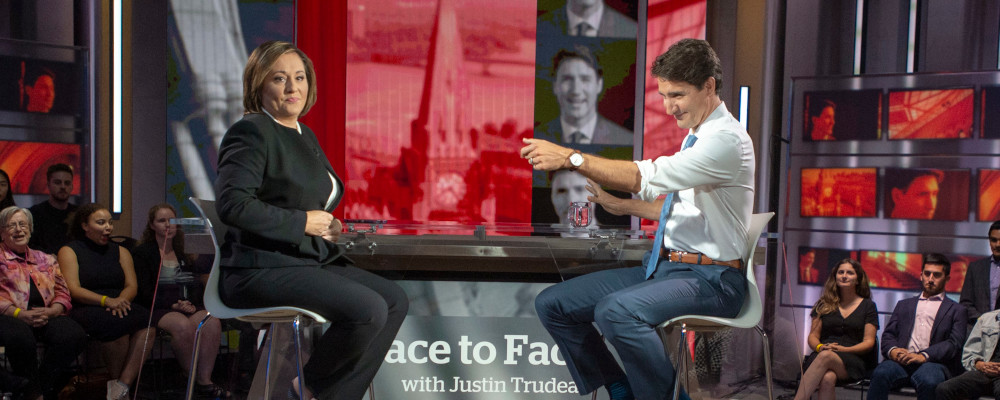Like many Canadians, I start my days by listening to my local CBC Radio One morning show.
In Regina, that’s The Morning Edition with host Stefani Langenegger. In the evenings, I sometimes listen right through The World At Six, As It Happens, and Ideas. On a Sunday drive, I’ll tune in to Cross Country Checkup followed by Tapestry with Mary Hines.
A lot of Canadians and a lot of the Mother Corp’s staff want to love the CBC. They want it to be a public broadcaster as it was envisioned, connecting Canadians, advertising-free. Trouble is, it doesn’t care. It wants to be something else. Just being good at being a public broadcaster isn’t good enough. It sees itself as a publicly-funded commercial broadcaster and the nation’s dominant online platform. For the past decade or so—since that description was spelled out at a regulatory hearing—there has been tension between the two visions.
But when the Canadian Radio-television and Telecommunications Commission (CRTC) recently rolled out a new licensing decision for CBC/Radio Canada—the single largest player in the national media biosphere—it was pretty obvious the debate was over and the commercialists have won.CRTC adopts modern approach for the CBC/Radio-Canada’s traditional and digital services https://www.canada.ca/en/radio-television-telecommunications/news/2022/06/crtc-adopts-modern-approach-for-the-cbcradio-canadas-traditional-and-digital-services.html
Our $1.3 billion federal subsidy2020-2021 Annual Report: Financial Highlights https://cbc.radio-canada.ca/en/impact-and-accountability/finances/annual-reports/ar-2020-2021/highlights/financial-highlights isn’t enough to make the CBC love us back. It wants more.
The deciding panel of five CRTC CommissionersOur Leadership https://crtc.gc.ca/eng/acrtc/organ.htm was split. Very broadly, two were inclined to impose strict “conditions of license.” The winning three preferred “expectations,” based on the fact they trusted CBC to do the right thing.
As Vice Chair Caroline Simard wrote in her dissent:
“I am of the view that the CBC’s accountability to the government, to Parliament, to its Board of Directors and to the Auditor General does not absolve the Commission from fulfilling its own mission and its own mandate under the Act. There is nothing in the public record that allows me to conclude otherwise.”
But, as it turned out, she and Ontario regional Commission Monique Lafontaine couldn’t carry the day. Outgoing Chair Ian Scott cast the deciding vote and a new, more laissez-faire framework is now in place. The heck with this public broadcaster business. And the heck with the impact on other media.
First, expect CBC to avail itself of its new freedom to do less TV news.
“The union representing most of the Corporation’s workers calls the decision unreasonable,” the Canadian Media Guild announced after reading the CRTC’s determination. “It fears CBC will use this to cut down television production in favour of spending on online content.”
Of course it will. The CBC has for years been shifting more resources away from broadcasting and into building its online presence. That, after all, is where it can monetize Langenegger and other radio hosts that it can’t make go “ka-ching!” on ad-free Radio One.
Online is where CBC and Radio Canada can swamp the boats of Canada’s struggling newspapers with subsidized content. Online is where the money is and it’s where CBC has every intention of scooping up more through Bill C-18.“This enactment regulates digital news intermediaries to enhance fairness in the Canadian digital news marketplace and contribute to its sustainability. It establishes a framework through which digital news intermediary operators and news businesses may enter into agreements respecting news content that is made available by digital news intermediaries. The framework takes into account principles of freedom of expression and journalistic independence.” https://www.parl.ca/DocumentViewer/en/44-1/bill/C-18/first-reading Intended as a rescue mission for newspapers, the biggest recipient of funds redistributed from Facebook, Google, and other tech giants will be the already subsidized “public broadcaster.” Newspapers may eat. CBC will dine.
The CRTC even provided an additional fork by approving the CBC’s sponsored content initiative. Called “Tandem’” this involves presenting advertising as if it were real news. Previous generations of journalists—CBC and otherwise—considered this to be an appalling practice, particularly when it involves, as it does in this case, slapping a For Sale sign on the brand of a Crown Corporation and standing it on a street corner. Numerous interventions in the CRTC’s process made the same point but, nope, it said:
“In the Commission’s view, the revenue-generating activities of the Tandem initiative are onside with the general approach that has been taken with the CBC in the past and consistent with the context in which the CBC currently finances its operations.”
Oh, the public broadcaster hat—worn, tattered old 1950s thing that it is—still comes in handy.
It allows for virtuous excursions like the CRTC ordering CBC to spend 30 percent of its independent programming budget on shows produced by Indigenous, official-language minority, racialized, disabled, and LGBTQ2 producers. Radio Canada has to spend similarly, but only 6.7 percent.
Pretty much a straight subsidy/splitting arrangement, neither party has to even care if anyone watches anything folks on those designated lists produce. Some of us might find that approach condescending but here, where it’s convenient for the CBC to throw on its “public broadcaster” chapeau, the CRTC is happy to help out.
“Since the CBC is a cultural institution,” states its decision, “audience success for certain types of programming in a commercial sense is not necessarily of paramount importance…the Commission has therefore focused most heavily on obtaining quantity and perception-based data to assess whether the CBC is successful at meeting its mandate.”
This, then, is how the Great Canadian Broadcasting Game is played.
The CBC, considering itself the CRTC’s equal, pretty much charts its own course—but will take minor directions on relatively inconsequential matters so the commission doesn’t lose face. In exchange, the CRTC stays out of the way as CBC hides a commercial warrior behind the shield of a public broadcaster.
Recommended for You

‘There are consequences to this legislation’: Michael Geist on why the Canada-U.S. digital services tax dustup was a long time coming

Rudyard Griffiths and Sean Speer: The future of news in Canada: A call for rethinking public subsidies

‘Our role is to ask uncomfortable questions’: The Full Press on why transgender issues are the third rail of Canadian journalism

Sean Speer: Investing in critical minerals isn’t just good business, it’s a national security imperative




